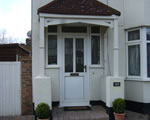 Go to main content
Go to main content
Archive Website of the UK government
Please note that this website has a UK government accesskeys system.
Main menu
Page menu
Money, tax and benefits

Tax on rent from residential property lettings

Letting residential property is treated as a single business, even if you let out more than one property. If you let out several properties, you can offset losses from one against profits from another. You pay tax on any profit as part of your overall income.
What counts as residential lettings?
Properties that you let out for people to live in as their home count as 'residential lettings'. For tax purposes these are treated differently from furnished holiday lettings.
If you rent out part of your own home this can also count as a residential letting. However, you can take advantage of the 'Rent a Room' scheme instead where you may have no tax to pay on the rental income you earn.
The scheme lets you get tax-free income of up to £4,250 from letting rooms in your home.
Working out your taxable profits from residential lettings
Step one
You work out your 'net profit' as follows:
- add up all your rental income
- add up all your 'allowable expenses'
- take your allowable expenses away from your income
If you have more than one residential letting, you group all the income and all the expense figures together.
Step two
To arrive at your taxable profit deduct any allowances you're entitled to from your net profit:
If you let furnished property, you can deduct either of the following:
- a 'wear and tear' allowance - based on a percentage of your rent
- a 'renewals' allowance - the cost of replacing old items with a new equivalent (but you deduct any money you get from selling the old item)
You can't deduct both allowances. Also you cannot claim capital allowances for equipment for use in a dwelling house. Most residential accommodation is classed as a dwelling house. However, you may be able to deduct certain 'capital' allowances for the cost of equipment relating more generally to your lettings business. Check the details in the links below.
Reporting your profits to HM Revenue & Customs
If your profit is less than £2,500
If you're employed or paying tax on a pension through Pay As You Earn (PAYE), your tax code can be adjusted to collect the tax on your property income each year.
However, your taxable income from property must be less than £2,500. Ask HM Revenue & Customs (HMRC) to send you form P810 to report your income each year.
If your profit is £2,500 or more or you're not on PAYE
In this case you'll need to fill in a Self Assessment tax return. If you don't receive one automatically, follow the link below to find out how to get one.
If your total income from UK property for the 2011-12 tax year is £70,000 or more you must declare it on your tax return. You must also show your expenses separately. If it's below £70,000 you can group the expenses as a single total on your tax return.
When you fill in your tax return, put in the rents and expenses for the year they relate to. It doesn't matter when you actually receive and pay them.
How much tax will you pay?
Your taxable profit from property letting is added to your overall income. If this is more than your tax allowances you'll pay tax on it at normal Income Tax rates.
If you let property jointly
If you let property with someone else, when you fill in your tax returns, or forms P810, you should each show your share of:
- the income and expenses
- the profit (or loss)
The help notes for your tax return explain how to do this.
Paperwork that you need to keep
You'll have to keep records of your property letting business for six years after the tax year they're for. You need them to back up the figures you put on your tax return. Your records should include details of:
- all the rent you receive and the dates when you let out the property
- any income from services provided to tenants
- your business expenses
- rent books, receipts, invoices and bank statements
 Facebook
Facebook Twitter
Twitter StumbleUpon
StumbleUpon Delicious
Delicious Reddit
Reddit